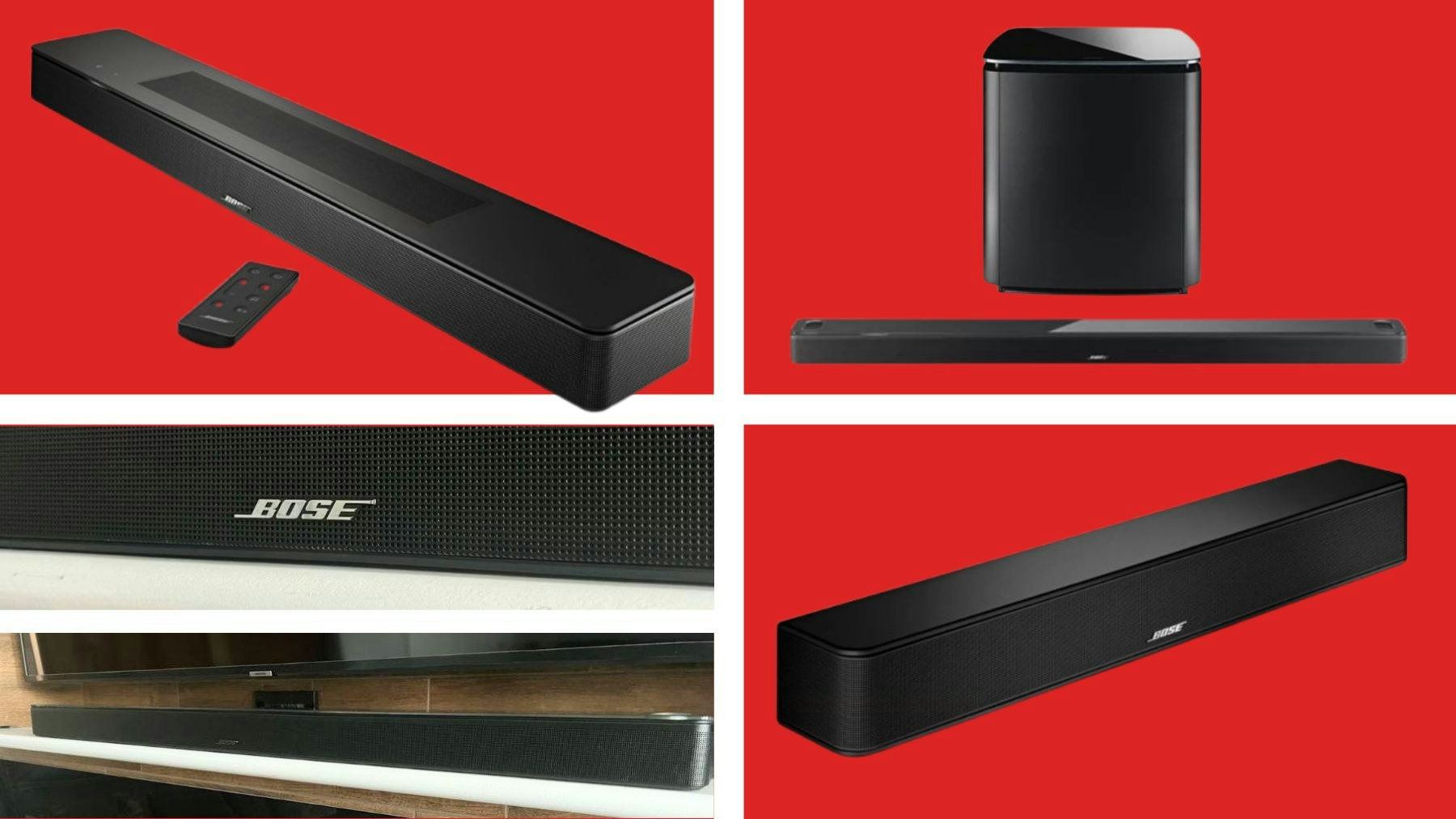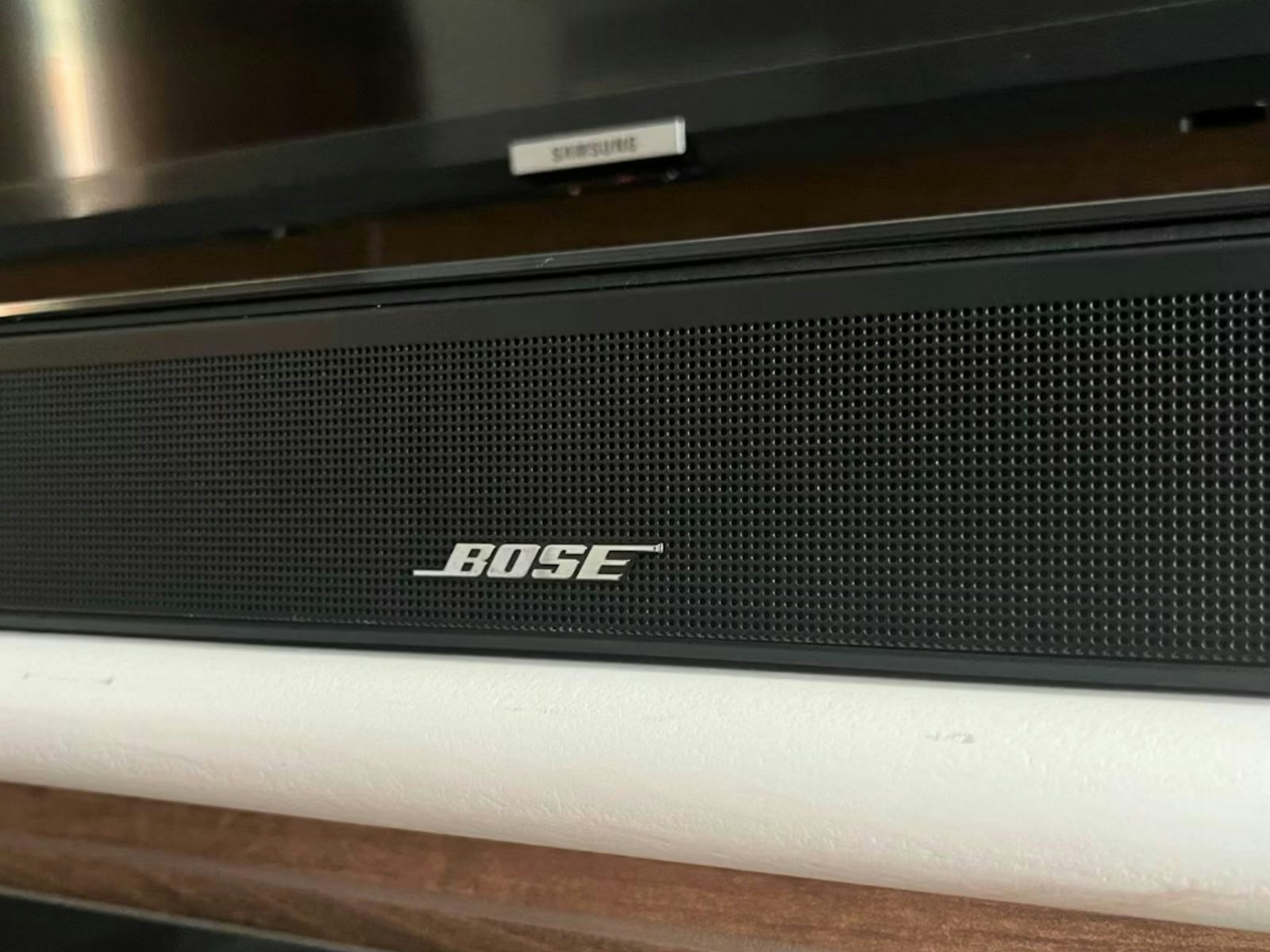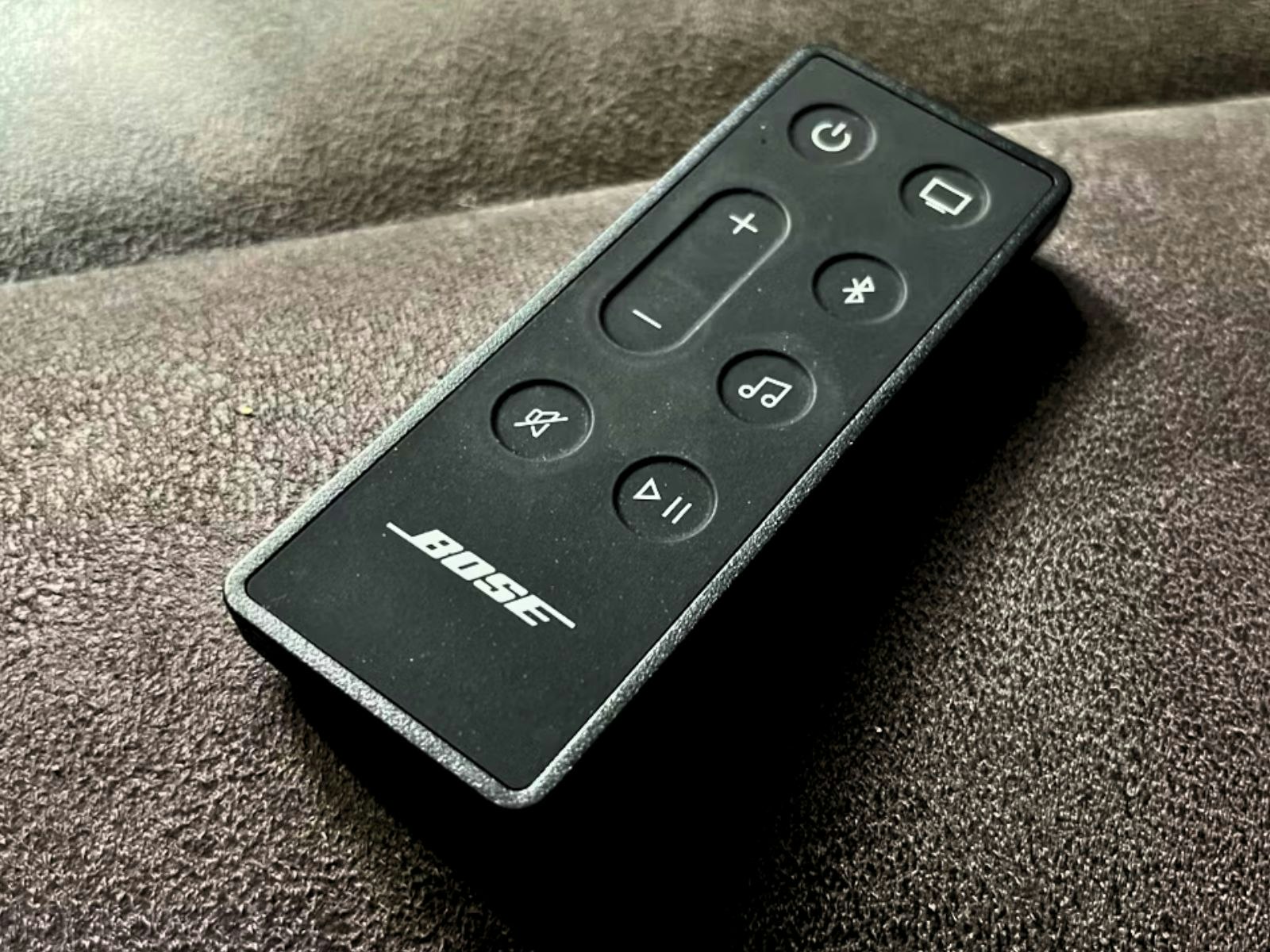These Are The Best Bose Soundbars: Top Picks From Budget To Premium
Bose may be a legend in the world of hi-fi, but it's just as epic when it comes to home cinema.

Those with a passing interest in audio will probably associate the Bose brand with audiophile-grade hi-fi kit, but it's been making soundbars since 2011. Cut to today, and the company continues to bring its signature sound, audio expertise and sublime design to a whole range of home cinema soundbars, with add-ons like subwoofers and extra surround speakers if you need them. The brand's renowned for precision high-end audio, which is why identifying the best Bose soundbar is a little like asking "What's the best Scorsese movie?" – whatever you settle on, you're choosing from a quality line-up. You won't need to worry about sub-par audio performance just because you're on a budget, either.
For us, selecting a Bose soundbar is all about getting the right features at the right price. As one of the most prolific soundbar makers in the market, there's a good range of sizes and specs to choose from. From the one-metre-long Bose Smart Soundbar 900 with Dolby Atmos support to the 60-centimetre Bose TV Speaker, there's something to suit any new TV and home cinema setup. Unlike lesser brands, it's focused on packing as much audio prowess as it can into each bar – without the need to throw in extra satellite speakers or subwoofers as standard. We think that speaks volumes about the range and power of these soundbars, making them a solid choice for anyone looking for powerful cinematic audio from refined and understated kit.

But what makes Bose, well… Bose? Besides the combination of high-end build quality and design, it's perhaps best known for having a refined and neutral audio profile, making for more of an unadulterated sound over systems that push extra bass, overly-bright mids or sibilant treble. The company is almost unique in that it develops and makes some of its own components, which gives it a technical edge over the competition.
As you'll see, included in some of our expert recommendations below, those looking for the cherry on the surround sound cake can indulge in a huge slice of extra bass with some satellite speakers on the side. That means that any of the best Bose soundbars can be the centrepiece of a much larger multi-speaker surround sound system for an amazing home theatre and gaming experience.
If you're looking to upgrade your existing soundbar, or are making your first soundbar purchase to amp up your 65-inch TV's audio, Bose is a premium choice – but more budget-friendly options are available too. So, which Bose soundbar is right for you? Let's take a look at the line-up.
How We Chose The Best Bose Soundbars
We've selected the best Bose soundbars based on reliable and trusted models, average user reviews, price, and suitability for each use case. We look carefully at the technical specifications of all products before recommending them to ensure that they will meet buyers' needs without the need for costly additions to work as intended. With all of our selections for the best Bose soundbars, we've looked for sound format support, smart features, build quality and overall design. We also look for good connectivity with various devices and extra control options, such as via companion apps. All of our writers may also choose products based on hands-on experience where we own or have reviewed them ourselves. Retailers are selected based on price, availability and reputation as reliable and trusted sellers. Find out more about how we recommend products.
All prices are correct at the time of writing. Prices, stock and deals are subject to change without notice.
Best Bose Soundbars In 2025
Expert's choice: The Best Bose Soundbar
Our top choice is the Bose Smart Ultra Soundbar as it offers excellent performance for a wide range of uses. If you don't need an especially compact option, and don't want to invest in subwoofers and extra surround speakers, it's a one-stop-shop for power and cinematic sound. But you can still expand its capabilities later, which makes it a brilliant first step for much larger room-filling sound later.
However, let's not forget the Bose TV Speaker. It may not be smart or support Dolby Atmos and other advanced audio formats, but if you're desperate to rid yourself of the thin-sounding audio from your TV's speakers, this will deliver great dialogue clarity and bass as only a Bose can. It's also a fantastic choice for those who want to buy from a premium brand but still need a budget buy.
What To Look For In A Bose Soundbar
A Fitting Size?
With such a wide range of sizes to choose from, you'll be spoilt for choice if you already have a lot of room to spare for new kit. However, always measure up – especially if you have a wall-mounted TV without a stand. You'll need to know whether the soundbar can be wall-mounted and if it will fit into your space. And if you have a TV stand, you'll need to ensure that the bar will fit length-wise, but also in depth. Bose soundbars tend to have a lot of heavyweight tech packed inside, so they're not the slimmest soundbars on the market.
Surround Sound Support
Not all of the Bose soundbars in our list support the king of spatial surround sound, Dolby Atmos, but most do. And that also means they'll support all branches of Dolby Audio. One limitation with all Bose soundbars at the time of writing is a lack of proper DTS support – DTS being the main rival to Dolby in the surround sound field. You'll find them both on Blu-ray discs, with the latter being found less often on streaming services. So, if you do have a vast collection of movies in the DTS, DTS
Bose Soundbars And Dolby Atmos
But it's not all about software. Just because a soundbar can decode a spatial surround format like Dolby Atmos doesn't mean it can do the best job with it. With Atmos, and other surround formats, normally the more speakers you can have dotted around your room the better. However, some clever audio engineering can allow the best soundbar (with enough drivers inside) to project sounds into your room with precision for a true surround effect.
So, if that's important to you, we recommend looking for a larger soundbar with more speakers inside. And if you're all about the 3D surround of Dolby Atmos, the bar should have some up-firing speakers to deliver those height channels. For the best cinematic experience, add a subwoofer and some rear surround speakers if your chosen Bose soundbar supports them.
Audio Power
Normally, when we give advice on speaker choice, our first port of call is audio power. The total wattage of a soundbar's built-in amplifier is the amount of audio power it has to feed the internal speaker drivers. Generally speaking, the greater the wattage the louder and better the sound. But power isn't everything, as the true measure of a soundbar is how those drivers use that power and the rest of the engineering involved, like the acoustics of the case itself. Many Bose soundbars house a range of drivers (sometimes including subwoofers and tweeters as well as midrange drivers), so they need a decent amount of power to work their magic.
Where Are The Watts?
However, when it comes to Bose, they rarely release that power data (or internal driver specs or frequency range for that matter). On the one hand, we can understand that decision. After all, raw power has little to do with actual acoustic performance. It's only an indicator of potential, not a hard and fast reason to choose one soundbar over another. On the other hand, it can be handy to know about wattages at the lower end, as that can play a role in limiting both loudness and frequency response (we've often avoided the odd Bluetooth or smart speaker once we discover a wattage of 10 or under). All that said, we're happy to defer to Bose's reputation here – if you're going for a Bose, a low-power experience isn't on the cards.
Our advice? If you want to guarantee more audio power, go for the larger Bose soundbars and beef them up with additional compatible Bose Bass Modules and Bose Surround Speakers.
Inputs And Expandability
We've covered the option of adding extra external speakers above, but if you plan to expand your Bose soundbar later, you should double-check that your chosen bar can support them. For instance, the small Bose TV Speaker isn't designed to be the cornerstone of a multi-speaker system, whereas the Bose 700 and 900 models are.
And while we're talking about plugging extra things in, if you want to hook the soundbar up to other devices such as games consoles or media players, you'll need to keep an eye on the number and type of available ports. Some Bose soundbars will have an optical digital input which is ideal for CD players and so on, and all have HDMI inputs with eARC functionality. More on eARC in our glossary below, but in short, it's a way to keep your setup neat by allowing you to send the video signal of, say, a console connected to the soundbar back to the TV. Conversely, the TV can send the audio of whatever you've chosen to watch back to the soundbar via the same cable. And if you're looking for a cable that can support all of that 4K and spatial audio data, the Anker Ultra High Speed 6.6ft HDMI cable is a good length for most TV and soundbar setups.
Do You Need Smart Features With Voice Control?
When we reviewed the Marshall Heston 120 soundbar, we were surprised to see that such a capable high-end speaker didn't have any smart functionality. Thankfully, for those who enjoy hands-free control over their sound and smart home, most Bose soundbars have it. But, if you're considering the Bose TV Speaker, that model doesn't.

Soundbar Terminology
Before you splash out on a new soundbar or surround system, it helps to know your ARC from your Atmos. Understanding these terms will help you choose the best Bose soundbar to match your needs – potentially allowing for upgrades and futureproofing in the process.
Dolby Atmos & Spatial Sound
Dolby Atmos brings three-dimensional, object-based audio to your home. Unlike regular surround formats like DTS or Dolby Digital, Atmos adds height and directional information so that sound effects – for example, helicopters – actually sound like they're flying overhead. It can position up to 128 distinct sounds in a room by mapping them to precise locations. While full-blown home cinema systems provide the ultimate experience, many modern soundbars now pack Atmos magic using upward or side-firing speakers. You might even consider wearable options like the Sony Theatre U we reviewed for even more immersive personal audio.
HDMI
HDMI is the go-to digital cable for sending high-quality audio and video between soundbars, TVs, and Blu-ray players. Most new gadgets use HDMI version 2.1 (or higher), which supports advanced features like higher resolutions, HDR (like Dolby Vision), and top-tier surround formats like Dolby Atmos. Some soundbars act as HDMI hubs, letting you connect several devices and easily switch between them.
ARC & eARC
ARC (Audio Return Channel) and eARC (Enhanced Audio Return Channel) are two flavours of a special HDMI port feature that lets your TV send audio straight to your soundbar without extra cables. With ARC, you can enjoy surround sound formats like Dolby Digital up to 5.1 channels. eARC, the upgraded version, unlocks lossless audio and advanced formats including Dolby Atmos and DTS
Satellite Speakers
Satellite speakers, also called rear or surround speakers, deliver sound effects either side of and behind you for true cinema-like immersion. They're separate from the main soundbar and may connect wirelessly or via cables. Many soundbar-based systems use at least two satellites, delivering a bigger, more accurate surround effect – especially for Atmos content.
Speaker Wattage
Wattage measures a speaker's power output. Higher wattage generally means louder sound and better dynamic range – as long as the rest of the speaker is well designed. A single wattage (like 60W) is usually the total for all the drivers in the soundbar, but that doesn't mean the power is distributed to each speaker driver equally, as some internal soundbar drivers will have higher wattages than others, depending on their size and type. For compact bars, look for at least 20-50W. For bigger rooms or soundbars aim for 100W or more.
Frequency Range
This is the spectrum of sound a speaker can produce, measured in Hertz (Hz). Higher numbers (2,000 Hz up to 20,000 Hz) mean crisper treble, while anything below 200 Hz covers those deep, booming bass notes. Subwoofers handle the very lowest frequencies – down to 20 Hz or less – for that true cinematic rumble that can be felt as well as heard.
Best Bose Soundbars FAQs
Latest Updates
This article was first published in August 2025. Future relevant additions and amendments will be noted here.
Chris Duffill is a Senior Tech Writer and Reviewer. He specialises in home entertainment and audiovisual tech, including speakers, projectors, TVs, amplifiers, turntables and more. He has decades of professional experience with various audio-visual technologies from a career in video production and media. He's owned various soundbars and AV systems for TV and projector-based home cinema set-ups. He's a lifelong TV and movie fanatic with a Masters in Screenwriting from the UEA.
What's Your Reaction?











